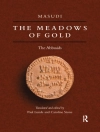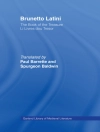This international and interdisciplinary volume investigates Protestant devotional identities in sixteenth- and seventeenth-century England. Divided into two sections, the book examines the ‘sites’ where these identities were forged – the academy, printing house, household, theatre and prison – and the ‘types’ of texts that expressed them – spiritual autobiographies, religious poetry and writings tied to the ars moriendi – providing a broad analysis of social, material and literary forms of devotion during England’s Long Reformation. Through archival and cutting-edge research, a detailed picture of ‘lived religion’ emerges, which re-evaluates the pietistic acts and attitudes of well-known and recently discovered figures. To those studying and teaching religion and identity in early modern England, and anyone interested in the history of religious self-expression, these chapters offer a rich and rewarding read.
Tabela de Conteúdo
Foreword – John Coffey
Introduction – Elizabeth Clarke and Robert W. Daniel
SECTION I: SITES
Part I: Devotional identities in religious communities
1 What was devotional writing? Re-visiting the community at Little Gidding, 1626–33 – David Manning
2 ‘HERSCHEPT HET HERT’: Katherine Sutton’s Experiences (1663), the printer’s device and the making of devotion – Michael Durrant
Part II: Devotional identities in the household
3 ‘A soul preaching to itself’: sermon note-taking and family piety – Ann Hughes
4 The Act of Toleration, household worship and voicing dissent: Oliver Heywood’s A Family Altar (1693) – William J. Sheils
Part III: Devotional identities in the theatre
5 Devotional identity and the mother’s legacy in A Warning for Fair Women (1599) – Iman Sheeha
6 Devotion, marriage, and mirth in The Puritan Widow (1607) – Robert O. Yates
Part IV: Devotional identities in the prison
7 ‘O this dark dungeon!’: murderers, martyrs and the ‘sacred space’ of the early modern prison – Lynn Robson
8 Editing devotional identity: the compilation and reception of the prison prose of George Fox’s Journal (1694) – Catie Gill
SECTION II: TYPES
Part V: Devotional identities in spiritual autobiographies
9 Fathers and sons, conscience and duty in early modern England – Bernard Capp
10 Dissenting devotion and identity in The Experience of Mary Franklin (d. 1711) – Vera J. Camden
Part VI: Devotional identities in religious poetry
11 Loyalist and dissenting responses to George Herbert’s The Temple (1633) in the devotional writing of the 1640s–50s – Jenna Townend
12 ‘Whom I never knew to Poetrize but now’: grief and passion in the devotional poetry of Richard Baxter – Sylvia Brown
Part VII: Devotional identities in the ars moriendi
13 ‘My sick-bed covenants’: scriptural patterns and model piety in the early modern sickchamber – Robert W. Daniel
14 ‘Now the Lord hath made me a spectacle’: deathbed narratives and devotional identities in the early seventeenth century – Charles Green
Afterword – N. H. Keeble
Index
Sobre o autor
Elizabeth Clarke is Professor Emeritus in English and Comparative Literary Studies at the University of Warwick
Robert W. Daniel is Associate Tutor in English at the University of Warwick












